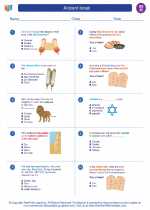Nazi Germany
Nazi Germany refers to the period from 1933 to 1945 when Germany was under the dictatorship of Adolf Hitler and the National Socialist German Workers' Party (NSDAP), also known as the Nazi Party. This era marked a dark chapter in world history, characterized by totalitarianism, extreme nationalism, and the perpetration of heinous crimes against humanity.
Rise to Power
Adolf Hitler, a charismatic and fervent orator, rose to power through a combination of political maneuvering, propaganda, and exploitation of Germany's economic woes following World War I. In 1933, he was appointed Chancellor and quickly consolidated his control, transforming Germany into a fascist state.
Nazi Ideology
The Nazi ideology was rooted in racial purity, anti-Semitism, and the belief in the superiority of the "Aryan" race. Hitler's regime implemented discriminatory laws targeting Jews, Romani people, disabled individuals, and other marginalized groups, ultimately leading to the Holocaust, the systematic extermination of six million Jews and millions of others.
Key Policies and Events
- Enabling Act: Passed in 1933, this legislation granted Hitler dictatorial powers, effectively dismantling democracy in Germany.
- Nuremberg Laws: Enacted in 1935, these laws institutionalized racial discrimination and stripped Jews of their civil rights.
- Kristallnacht: In 1938, a state-sanctioned pogrom resulted in the widespread destruction of Jewish homes, businesses, and synagogues.
- Invasion of Poland: In 1939, Germany's aggression sparked the outbreak of World War II.
- Final Solution: The systematic genocide of European Jews, implemented through extermination camps like Auschwitz, Belzec, and Sobibor.
Legacy
The defeat of Nazi Germany in 1945 marked the end of World War II, but the impact of the regime's atrocities continues to reverberate. The Nuremberg Trials held accountable many high-ranking Nazis for war crimes and crimes against humanity, and the Holocaust stands as a stark reminder of the consequences of unchecked hatred and prejudice.
Study Guide
- Describe the political climate in Germany that facilitated Hitler's rise to power.
- Explain the key tenets of Nazi ideology, including its impact on minority groups.
- Analyze the significance of major policies and events during the Nazi era, such as the Enabling Act, Nuremberg Laws, and the Holocaust.
- Evaluate the lasting impact of Nazi Germany on global history and the pursuit of justice in the post-war era.
[Nazi Germany] Related Worksheets and Study Guides:
.◂Social Studies Worksheets and Study Guides Eighth Grade. Ancient Israel

 Worksheet/Answer key
Worksheet/Answer key
 Worksheet/Answer key
Worksheet/Answer key
 Worksheet/Answer key
Worksheet/Answer key
